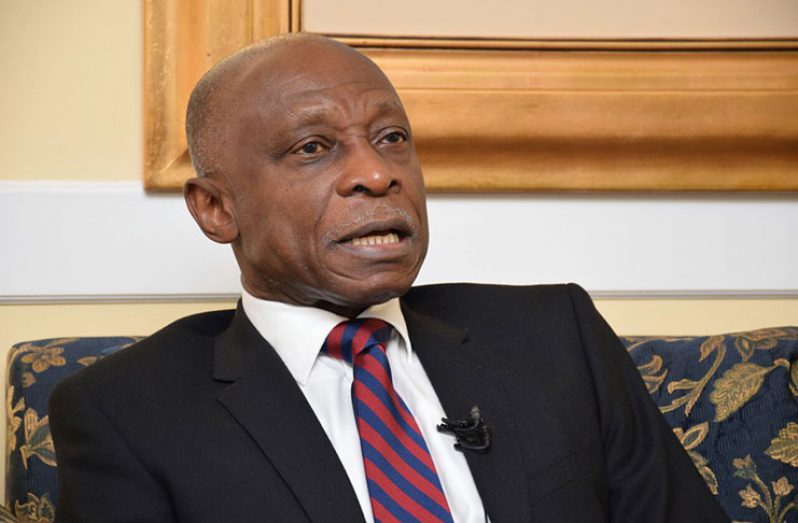– says Min. Greenidge of CCJ’s ability to adjudicate satisfactorily
MINISTER of Foreign Affairs, Carl Greenidge has said that Guyana has every confidence in the ability of the Caribbean Court of Justice (CCJ) to settle regional matters.
And this is in spite of sister Caribbean Community (CARICOM) countries Grenada and Antigua and Barbuda this month voting, by way of referenda, against having it as their final court of appeal.
Asked Wednesday for a comment on the subject, Minister Greenidge said that the choice of a Caribbean State to accept or refuse the CCJ as its final appellate court does not, in any way, affect the court’s functionality.
Both Grenada and Antigua and Barbuda have opted to have the UK Privy Council remain as their final court.
“The credibility of the court does not depend on the number of members of the court; it depends on its competence and processes, and we are satisfied with it so far,” Minister Greenidge said.
He said that Guyana’s judicial system, which allows for cases to be heard in the High Court, then the Court of Appeal and finally the CCJ, if needs be, has proven to be beneficial over the years.
“We’ve had difficulties, in that a number of challenges that have been dealt with domestically, they sometimes arrive at positions that either the government or some other protagonist regard as unacceptable or not appropriate, and they go to the [CCJ] court…
“We’ve looked at them with the benefit of hindsight that they [the CCJ] have taken us forward,” he said.
Presently, only Guyana, Barbados, Belize and Dominica have abolished appeals to the Privy Council and accepted the Trinidad-based CCJ as their final appellate court.
St. Vincent and the Grenadines had also, by way of a referendum, refused to abolish taking appeals to the Privy Council some seven years ago.
Grenada’s Prime Minister, Dr. Keith Mitchell had expressed his disappointment at the results of the referendum in his country, which came in at a margin of 9,492 in favour and12, 434 against.
Said he at the time: “The people have voted based on what they wished to see. As a serious Democrat, it has been accepted. I am not happy with it, but that has always been my position when results of elections are given.”
In Antigua and Barbuda, some 47.96 per cent voted in favour of the CCJ, while 52.04 per cent chose to retain the Privy Council.
CCJ President, Justice Adrian Saunders had also expressed his thoughts on the decision.
“These results will not, of course, deter us from serving with distinction those nations that currently send their final appeals to us,” he said.
“As well, the court will also continue to process and hear applications from all CARICOM States, and from CARICOM itself, in our Original Jurisdiction, and our justice reform work in the region will also continue,” he added.
Said Minister Greenidge in closing: “The public can be assured that the government, if it is dissatisfied with decisions taken at this level, will resort to court. And we are reasonably confident that the court will render acceptable decisions.
“Of course, this is a court, and you’re never going to be able to guarantee that they’re going to agree to everything you say.
“It’s law; there’s the question of interpretation of law. So, we are not going to tell you everything we take there we will win; and we are not going to say that every decision they make we will think is the right decision.
“But we are satisfied that the processes and competences of the court, as currently constituted and likely to be constituted under the rules that we have, is a place; a forum that they provide us with…decisions that one would regard as acceptable and consistent.”



.jpg)









